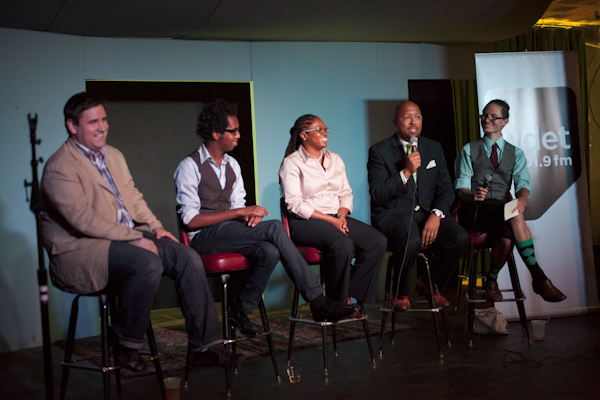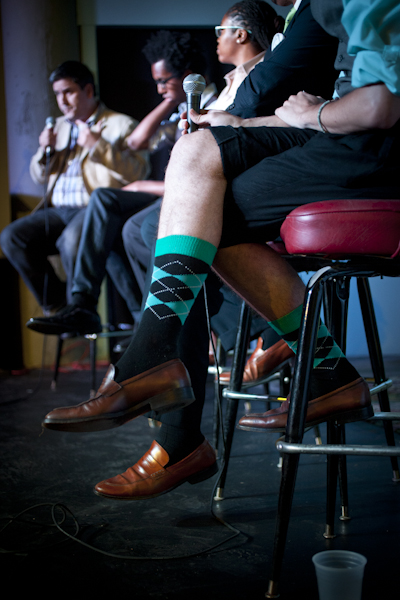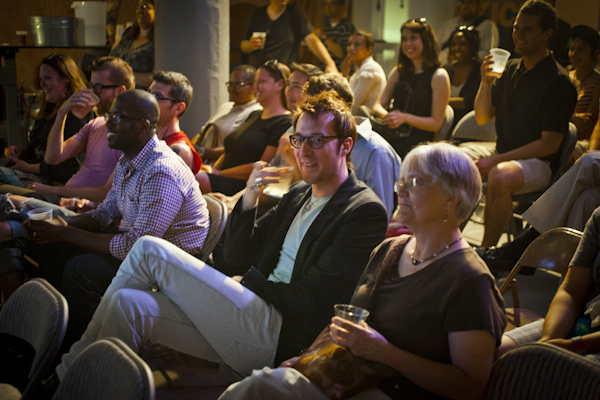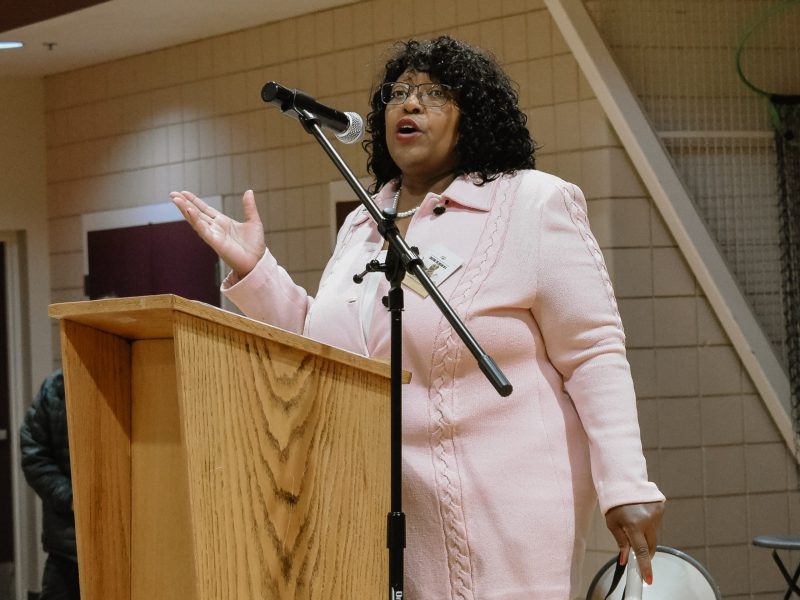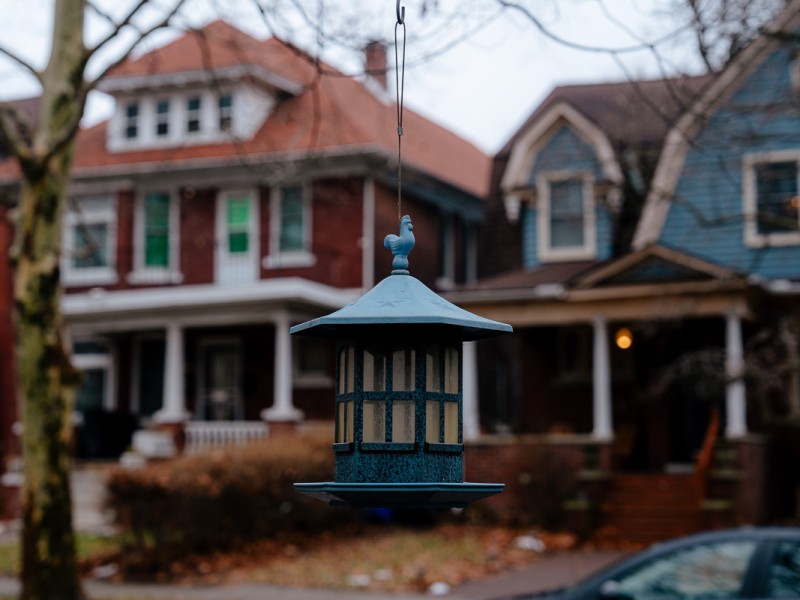“Inclusivity and visibility”: Gay Detroit going forward discussed at Model D Speaker Series
A crush of people, ideas, lively discussion and robust debate were all part of our Speaker Series event last week at downtown’s Park Bar. Our summer intern Audrey Armitage was there taking copious notes and filed this recap along with managing editor Walter Wasacz.
The room was buzzing. Excellent food and drink helped, but most of the energy was generated by a lively panel discussion on Gay Detroit. The event on the second floor of downtown’s Park Bar was a perfect bookend for the return of the Motor City Pride festival to the city earlier this month.
That celebration of the Detroit LGBT community drew over 40,000 people to Hart Plaza; last week’s Model D Speaker Series event drew a standing room only crowd whose numbers were hard to estimate. The entire Park Bar was crammed, upstairs and down, with more people coming later to a town hall on equality action sponsored by Unity Michigan.
By the time the afterglow, a special summer edition of Doggy Style, got rolling there were hundreds of people on both floors and spilling onto the sidewalk.
So who was doing the talking and what were they talking about?
The panelists were Charles Pugh, president of the Detroit City Council; Roland Leggett of Equality Michigan; entrepreneur Joe Posch of Supergay Detroit; Kirsten Ussery of Downtown Detroit Partnership and the Villages CDC; and designer and activist Nick Piotrowski, who moderated.
To the question of how welcoming Detroit is to the LGBT community, Ussery, a West Village resident, answered: “It’s very welcoming on a neighborhood level.”
And how do LGBT Detroiters shape community life?
Pugh said “we raise property values, improve neighborhoods, make them cool.” He said that where gay people live, the overall economy benefits. As a public official who came out before he was elected, Pugh said that “out” elected officials “signal to LBGT youth to step up and make decisions that affect the community.” He said more LGBT candidates and policy-makers will help others “feel more comfortable coming out.”
Pugh, who talked about his political ambitions throughout the evening, also called himself “everybody’s city council president and I will be everybody’s mayor.”
Leggett said that job safety, fair treatment in housing are crucial LGBT issues. He said events like Motor City Pride are “catalysts for change” and important to bring visibility and equality to the community.
The panel was largely in agreement on most responses until the question of whether Detroit needs a gay neighborhood was raised.
Posch, who lived in Ann Arbor before moving to Detroit and opening the downtown-based business Mezzanine, voiced a strong opinion in favor of a “gayborhood,” saying “it is important for (community) visibility, and it will send a message to tourists and LGBT people that Detroit is safe, open and welcoming.”
Ussery said that in her Villages neighborhood, she saw more pride flags displayed this year, “which is the first step in creating a gay neighborhood.” She said that the flags and banners “are a sign that we are a progressive city.”
But Pugh said he believes “all Detroit neighborhoods should be open and gay-friendly,” and disagreed with the notion of a dedicated gay neighborhood. He did say when he was campaigning for city council that he encountered more gay couples in Boston-Edison than in other neighborhoods.
Posch said he “respectfully disagreed” and said one of his motivations for starting his Supergay Detroit blog was that he could not find “a visible gay community” when he moved into the city six years ago.
After the discussion, some members of the audience talked about the Palmer Park neighborhood, which was, for decades, the epicenter for the city’s gay residential, commercial and party life.
Many of those residents migrated north a few miles to Ferndale beginning in the 1980s and 1990s. Panelists and members of the audience talked about sharing resources with suburban communities and coordinating future events.
This year, Ferndale held a gay pride event at the same time as Detroit held its festival, splitting the two communities.
After an intermission, another discussion, sponsored by Unity Michigan, was held. The panelists talked about policy issues that have an impact on the community and the need to amend the Elliott-Larsen Civil Rights Act to include LGBT people. This amendment would guarantee equality in employment, housing and other public accommodations.
Even though 70 percent of all Michigan residents support non-discrimination ordinances, only 18 cities in the state have those ordinances.
Shelli Weisberg of the ACLU encouraged writing letters to state legislators to urge them to support the amendment to the Civil Rights Act. She said more LGBT people should also in involved in policymaking by sitting on commissions, boards, city councils and other government bodies.
The monthly Speaker Series is sponsored by WDET and MSHDA and Model D.
Audrey Armitage, a student at the University of Michigan’s Residential College, is interning this summer at Model D.
